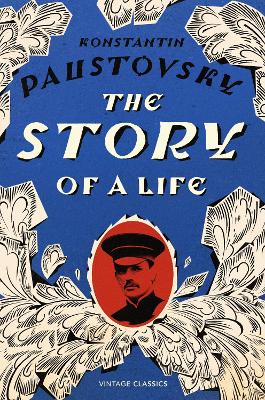
The Story of a Life
Konstantin Paustovsky
£25.00
Out of stock
Description
Discover one of Twentieth-Century Russia’s most lauded lost classics, now in a remarakble new translation.
‘Outstanding… A sparkling, supremely precious literary achievement’ Telegraph
‘One of the great Russian autobiographies, as fresh now as the day it was written – and the day it was lived’ Julian Barnes
In 1943, Konstantin Paustovsky, the Soviet Union’s most revered author, started out on his masterwork – The Story of a Life; a grand, novelistic memoir of a life lived on the fast-unfurling frontiers of Russian history. Eventually published over six volumes, it would cement Paustovsky’s reputation as the voice of Russia around the world, and see him nominated for the Nobel Prize in Literature.
Newly translated by Guggenheim fellow Douglas Smith, Vintage Classics are proud to reintroduce the first three books of Paustovsky’s epic for a whole new generation. Taking its reader from Paustovsky’s Ukrainian youth, struggling with a family on the verge of collapse and the first flourishes of creative ambition, to his experiences working as a paramedic on Russia’s frontlines and then as a journalist covering the country’s violent spiral into revolution, The Story of a Life offers a portrait of an artistic journey like no other.
As richly dramatic as the great Russian novels of the 19th and 20th centuries, but all the more powerful for its first-hand testament to one of history’s most chaotic eras, The Story of Life is a uniquely dazzling achievement of modern literature.
Publisher Review
A work of astonishing beauty ... a masterpiece -- Isaac Bashevis Singer A literary masterpiece.... This is not the cracker-barrel blandness of some professional sage, as so often in America's ghost-written memoirs, but a wisdom of tragic insight and of hard-earned integrity * Saturday Review * An older man, a survivor, and a witness, Paustovsky writes against time, to tell the young what the past was like... His work is nothing like an elegy, nor is it as routine as a backward glance at the good or bad old days. It is, rather, a series of sketches, stories, novellas, in which vanished people (including the author's young self) are present again - as they once walked in a park, or smiled, or wept - and made anew in man's most endurable medium, language * New Yorker *
Book experts at your service
What are you looking for?